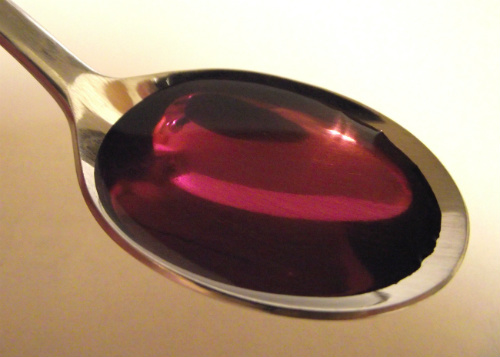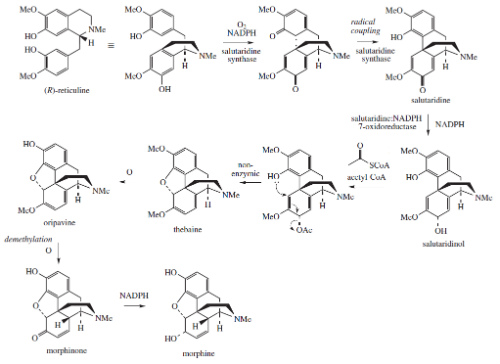- American Society of Pediatrics recommends that pediatricians stop prescribing the drug.
- Codeine response is widely variable among children, outcomes are unpredictable.
- This crude opioid is potentially lethal.
- Other drugs are better suited for pediatric clinical scenarios.
It is time to change the clinical conduct of generations of pediatricians who have prescribed codeine. The drug should not be used in children at all, according to a recent recommendation by the American Academy of Pediatrics (AAP).

as an analgesic and antitussive in children for generations.
(Source: Wikipedia/Public Domain.)
Codeine has been prescribed as an analgesic and antitussive in children for decades (Figure 1). It was first isolated in 1832 in France by Pierre Robiquet, and has been called the most widely used opiate in the world. The time to stop prescribing this crude drug may be upon us.
A good deal of the changed opinion about codeine is related to the fact that metabolism of the drug varies widely among patients. “There is substantial genetic variability in the activity of the responsible hepatic enzyme, CYP2D6, and, as a consequence, individual patient response to codeine varies from no effect to high sensitivity,” according to an editorial in Pediatrics, the official journal of the AAP.
Codeine is in fact a prodrug that has little inherent pharmacologic activity. It is metabolized in the liver into morphine by CYP2D6 (Figure 2). It is morphine that is responsible for codeine’s analgesic effects. The variability of this metabolism among individual patients means that children are receiving unknowable doses of morphine. The clinical response creates a dangerous situation for clinicians and patients. When administered to children, codeine can cause respiratory depression and death in rapid and ultra-rapid metabolizers. Those with sleep apnea are at the highest risk.

(Sources: Wikimedia Commons/By Mephisto spa (Own work)/
Wikimedia Commons/Creative Commons.
The World Health Organization, the US Food and Drug Administration, and the European Medicines Agency, have issued stern warnings regarding the occurrence of adverse effects of codeine in children, according to the editorial in Pediatrics. Today, clinicians have access to drugs that are more effective for pain relief and cough suppression without the unpredictability of codeine.
“For a small but non-negligible number of children, codeine treatment may cause respiratory depression or even death because they "overmetabolize" codeine into morphine, according to Joseph Tobias, MD, and colleagues in AAP's Section on Anesthesiology and Pain Medicine and its Committee on Drugs,” noted the editorial authors.
"I think we would like the FDA to really ban the use of codeine – it's not better than some of the alternative methods we have to control pain and it's an older drug, has to be metabolized to work. Given these risks, we really need to stop its use throughout the country," said Dr. Tobias in an interview with MedPage Today. "I'd love to see a nationwide removal of codeine – not only for its use to control pain, but also as a cough suppressant and any other of these ancillary uses of codeine."
